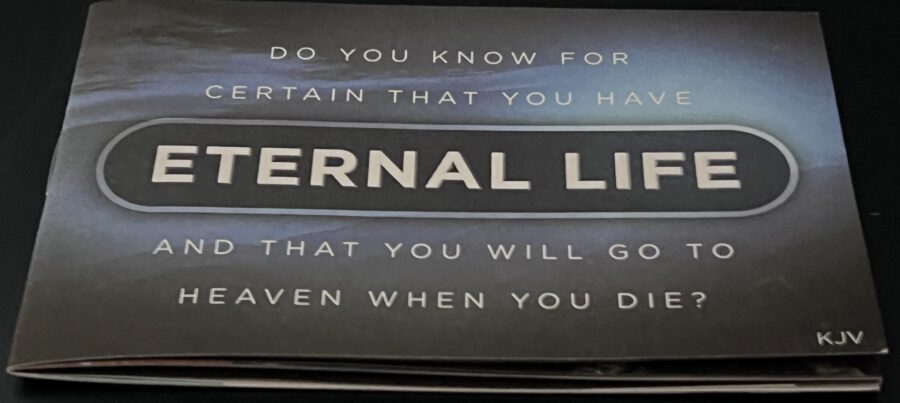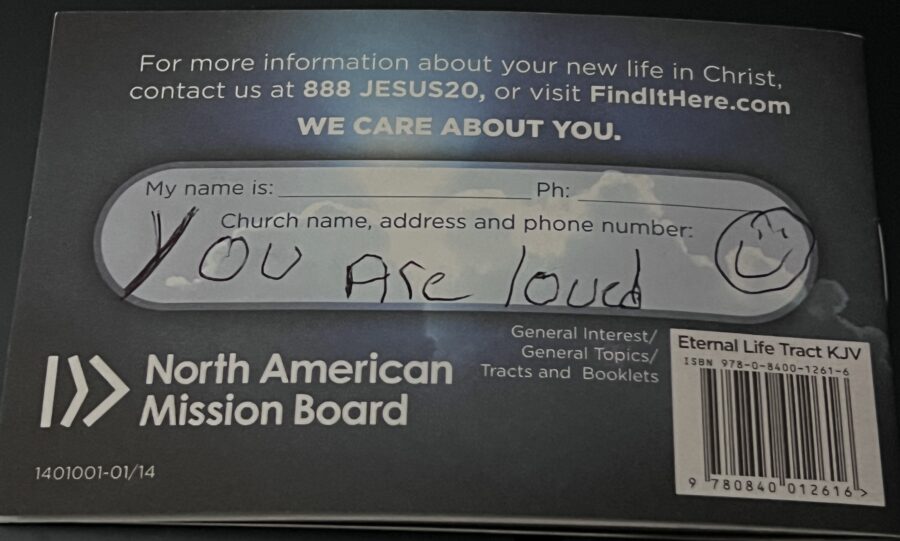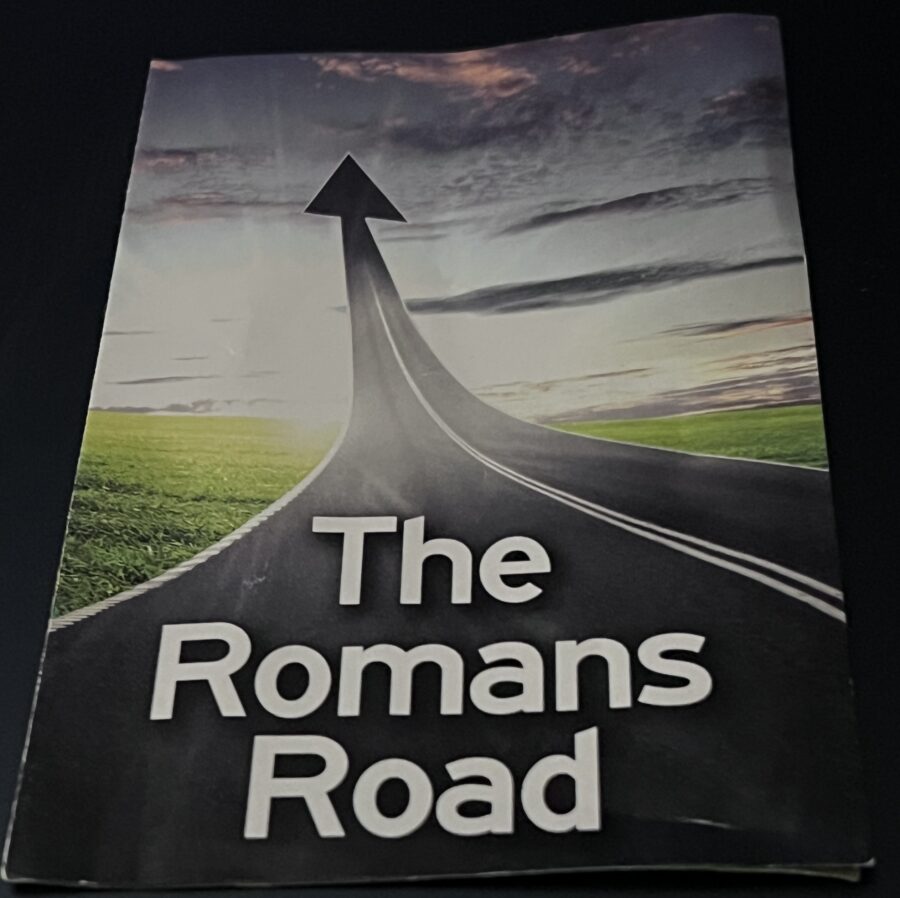
Think of all the people currently living on Earth—approximately eight billion people. Most of them subscribe to some sort of religion, worshipping any one or more of the deities humans have worshipped throughout history. I, too, was born into a devoutly religious family. From the time I was a preschooler to age fifty, I devoted my life to and worshipped the Evangelical God—especially from the age of fifteen forward. At fifteen, I had an experience that is common among Evangelicals. Most of the churches I attended/pastored were Baptist congregations. Making a personal decision to get “saved” was essential to becoming a Christian and church member. While Baptists raised in the church typically make salvation decisions as children, most have subsequent experiences during their teen years. I trace my Christian faith back to an Al Lacy revival meeting in 1972. My parents had divorced earlier that year, and while my parents/siblings stopped attending church, I immersed myself in the machinations of Trinity Baptist Church, attending services every time the doors were open. Trinity provided me with a loving home and a family, and amid my troubled life, the Holy Spirit came to the pew I was sitting on that fall night, convicted me of my sin, and brought me to saving faith in Jesus. From that moment forward, I was a born-again Christian — sins forgiven, Heaven bound, praise Jesus!
Two weeks later, I stood before the church and confessed that God was calling me to be a preacher. In the fall of 1976, four years after getting saved, I enrolled for classes at Midwestern Baptist College in Pontiac, Michigan — a school known for training Independent Fundamentalist Baptist (IFB) pastors. While at Midwestern, I met the love of my life. Marriage and an unplanned pregnancy interrupted my college plans. After three years at Midwestern, my partner, Polly, and I packed our meager belongings into a small U-haul trailer and the backseat of a white 1969 Chevrolet Impala, and moved to Bryan, Ohio — the place of my birth, five miles from where we live today.
Several weeks after we moved to Bryan, I was asked by Jay Stuckey, pastor of Montpelier Baptist Church, to be his assistant — an unpaid position focused on improving/expanding the church’s bus ministry and evangelization efforts. We left Montpelier Baptist after seven months, moving to Newark, Ohio — the home of Polly’s parents. After spending two and a half years working with Polly’s father at Emmanuel Baptist Church in Buckeye Lake, I struck out on my own, starting a new Baptist church in Somerset. I would later pastor churches in San Antonio, Texas, Alvordton, Ohio, West Unity, Ohio, and Clare, Michigan. All told, I spent 20,000 hours reading and studying the Bible, preaching over 4,000 sermons, and winning hundreds of people to Christ.
While I would never say that I know everything there is to know about the Bible, I am conversant in all things Bible — especially from a Protestant/Evangelical perspective. I find it amusing when Evangelicals assume that my “problem” is that I don’t understand the Bible; that if I just read certain Bible verses and books or listened to the sermons of this or that preacher, I would see the light and return to the one true faith. And when I say I have already done those things, I am oft accused of lying or being disingenuous. In other words “If you don’t agree with me, you are a liar.”
Evangelicals generally believe that understanding the Bible requires God, the Holy Spirit, living inside of you as your teacher and guide. Without the indwelling of the Spirit, you cannot understand the Bible. Thus, whatever knowledge I may have had as a college-trained Baptist preacher, I am now ignorant of what the Bible teaches; I’m every bit as ignorant as someone who has never, ever read or studied the Bible/Christianity. In no other setting except Evangelicalism does such thinking carry any weight. I know what I know. Just because I am no longer a Christian doesn’t mean I am ignorant about the Bible.

I frequently receive books, tracts, and other printed/recorded Evangelical material from people who are certain that if I just listened to or read what they sent me I would immediately fall on my knees, repent of my sins, and come to or return to (depending on their soteriological beliefs) saving faith. Yesterday, I received a tract in the mail from a local Southern Baptist. No church/individual name was printed on the tract, but the sender wrote “you are loved” with a smiley face on the back of the tract.
The tract was typical of such evangelistic tools. Published by the North American Mission Board (NAMB), the tract presented a shallow, superficial, truncated gospel that, according to the author of the tract, would save me from my sins and guarantee me a home in Heaven after I die. At the back of the tract was a form for me to sign if I prayed the sinner’s prayer, letting the person/church who sent me the tract know that they could put another notch on their gospel six shooters — another sinner “killed” by the Southern Baptist perversion of the Christian gospel.
Several months ago, I received a short book published by an Evangelical preacher named Peter C. English. English wanted to educate me about where I could find the inerrant, infallible Word of God; that there was one English language Bible that was direct from the mouth of God. I am sure some of you are thinking, “King James-only, right?” Yep, but not just KJVO alone. English believes a particular King James translation is THE Word of God — “the Pure Cambridge Version of the King James Bible.” According to the Pure Cambridge website, this Bible is:
By the term Pure Cambridge Text, I refer to a perfect King James Bible as it was printed between the end of WWI and until 1985, but is now being printed by Church Bible Publishers. If you were to look at the English Bible on a pulpit in heaven, it would match exactly. Every word, every letter, every punctuation mark, every verse marking, every italicization, and every subscript and title would be exactly what God the Father thinks of when he considers the English Bible.

I also had a member of First Baptist Church in Bryan, Ohio recently drop a tract on my doorstep. Titled “The Romans Road,” the tract presents yet another shallow, superficial, truncated gospel, one sure to save me if I would just “believe.” Here’s the thing, I used to attend First Baptist in the 1970s. I am well known to the church, so it is unlikely that the person leaving the tract didn’t know who I was. I watched the woman on our RING doorbell camera as she knocked on the door, and not getting an answer, tried to stick the tract in the space between the door and frame. Unable to do so, she huffed and sighed, dropping the track on the stoop in front of the door. Off she went, thinking her littering did its job — saving the notorious atheist Bruce Gerencser.
What do these evangelizers hope to accomplish with their books and tracts? Surely they can’t think that I will be won over to their side by reading second-grade religious material? Not going to happen. I know all I need to know about God/Bible/Christianity. I can’t imagine a theological or philosophical argument I would find persuasive. Maybe, but it’s been many years since I have heard an original, compelling argument for Christianity. All I seem to get from Evangelicals are the same worn-out arguments I have heard my entire life.
To Evangelicals, I say, please don’t waste your time sending me books, pamphlets and tracts. They are not helpful, and I see them as nothing more than reminders of how shallow Evangelical theology really is. You might think that the Holy Spirit will use the words on the printed page to prick my conscience, but, so far, the score is Bruce — 1,000,000 Holy Spirit– 0. You might want to think of more effective ways to evangelize Evangelical-preachers-turned-atheists.
How about you? When was the last time you heard a compelling argument for God from an Evangelical apologist? Please share your experiences in the comment section.
Bruce Gerencser, 68, lives in rural Northwest Ohio with his wife of 47 years. He and his wife have six grown children and sixteen grandchildren. Bruce pastored Evangelical churches for twenty-five years in Ohio, Texas, and Michigan. Bruce left the ministry in 2005, and in 2008 he left Christianity. Bruce is now a humanist and an atheist.
Your comments are welcome and appreciated. All first-time comments are moderated. Please read the commenting rules before commenting.
You can email Bruce via the Contact Form.

LOL, so she pretends like Bruce Gerencser never heard of the Romans Road!
If she was interested in people learning new perspectives, I am sure you could have given her dozens of books that would have opened her eyes to facts and viewpoints that she had never heard of. If others need to learn new perspectives, does she not also need to see new ways of looking at life? I wonder if that ever occurred to her?
I can’t remember really. Anyone who knew me wouldn’t dare as well, they knew me and knew what I knew. 🙂
I often think this whole handing out of tracks is more about the person handing them out than about God’s salvation. More about their own. Must obey and thus retain their own salvation &/or at least gain another crown or two.
You can’t blame me… I sent you “Not the Bible”. I was hoping when you opened it, you’d say, “Oh no… not the Bible!”
Instead of “You are Loved” I thought that said “You are Loud”. Both work I guess.
As for the promise of eternal life… is that even possible? A lot of eternity has already elapsed that I had no part in.
Zoe–Great point. I admit that when I handed out tracts, I often doubted that they would have any effect on the person receiving them. But at least God would know I tried.
Thanks velovixen. It just seemed more of a duty and maybe pure laziness on the part of the church. I had a family member use one to try and gain control over my boundaries that they didn’t like. Slid it across the table when they thought I wasn’t looking. Lazy. Couldn’t be bothered to just say it to my face. The irony of it all as I along with Biker Dude were in youth ministry. Knew the Bible back and forth but somehow I guess the member thought I’d lost my mind and forgot my Bible lessons and a little booklet would bring me back to submission. :/
Funny, I read the writing as “You are loud”
Oops
“If you were to look at the English Bible on a pulpit in heaven, it would match exactly. Every word, every letter, every punctuation mark, every verse marking, every italicization, and every subscript and title would be exactly what God the Father thinks of when he considers the English Bible.”
That’s some major presupposition there! The answer is probably “yes”, but I wonder if there are evangelicals in other countries who think this way about a specific translation of the Bible in their language. Like, is there an Ultimate Dutch Translation version that Dutch evangelicals consider to be the inerrant infallible literal word of God?
This summer on an airplane, a white evangelical young woman raised and educated in IFB gave me the whole spiel. I felt bad fkr her and let her go on, though I coukd have done it better lol. I diverted her onto the topic of musicals after I found we had that in common, so I didn’t have to hear about Jesus or one man one woman marriage anymore. I felt bad for this young woman who had no life exposure outside IFB – she was working at the IFB college she had attended.
@ObstacleChick You have to imagine how small minded those are that believe that a particular English translation of the Bible is the perfect Bible. King James version in particular is fantastic as a religious tool. It sounds old timey, yet can be comprehended if one is astute; and of course is written in God’s favorite language–English.
I never found any argument for Christianity to be persuasive. Quite the contrary. My skepticism of organized religion actually was ignited by my neighbor and friend who was at the time the youthful Pastor of Emmanuel Missionary Baptist church of Ft Wayne, IN. I asked him how people born and raised outside of Christian culture were ever to get to Heaven. I thought a Graduate of Bible College, and a Pastor, could explain that apparent injustice to a lay person. His sincere, well meaning, devout, explanation amounted to “tough luck” for the heathens. To me that was very unsatisfying and certainly the opposite of his intention. It was no explanation at all and marked the moment I began my slippery slide into agnosticism. Once you insist on making sense, you can’t believe what can’t be explained.
Just a few days ago, I received in the mail a letter addressed to me. It had my full first, middle, and last name. It was from the local congregation of Jehovah’s Witnesses. My building is secure, and strangers are not allowed in for preaching, selling, or anything else. I don’t know how they got my name and correct address. 😾 I tore it up. It pissed me off because I thought I was free of that sort of thing.
Btw, to change the subject, with all the crap Trump and Musk are pulling, you will have enough blog material for years, Bruce. That is, if they don’t kill us first.
Harvesting (hacking) databases has become SOP for many organizatiins and businesses, legit and otherwise. Privacy and ethics be damned. Musk was given access to the US Treasury data which includes our SS#, addresses, etc. and of course our financial details. Expect the worst.
@missimontana I get a JW letter every 6 months or so. What I find amusing about it is they feel the need to use stealth to get you to open it. If it said “Kingdom Hall of JW” in the return address, you could easily just put the who letter in the recycle bin without even opening it. No, it is typically plain, maybe even a handwritten address. If your message is so pernicious that you have to use stealth to deliver it, maybe you should rethink your message.
Wes Huff (a newbie nicey nicey smiley apologist) appeared recently on the Joe Rogan show explaining how the bible must really be true because the book of Isaiah (not sure which version) was found to correspond exactly with the Isaiah Dead Sea Scroll version. Not just approximately, not just in essence, but entirely word for word and comma for comma. I have to say that if I came across this claim without any corresponding commentary I’d be impressed, albeit I have almost no knowledge of the subject, other than I remember having to learn a couple of verses when I was at primary school for a nativity play.
Anyhow a couple of my favourite counter apologists (Alex O’Connor and Stephen Woodford of Rationality Rules) picked up on the discussion and, with the help of some ‘real’ bible scholars picked holes in what Huff claimed. I can’t remember the exact numbers but it came out that there were into the thousands of variations! Huff then claimed that “well yes, there are variations but they are just spelling variations and don’t affect the meaning” (a genuine scholar would have pointed this out in the first instance). Unfortunately for Huff, the real scholars then responded by pointing out that the spelling (and similar) variations were already accounted for in their numbers, but that the several thousand variations they were referring to were ON TOP of the spelling ones, and they gave different meanings to the words.
I don’t understand how Huff could possibly have got this so wrong? Yes, it’d be nice for his worldview that there were no (significant) variations but surely he must have known that his claim of no variations was just plain mendacious. Like your correspondent, though I daresay they aren’t actually claiming to be a scholar and don’t realise how badly wrong they are!
Pingback:Week of Trump Extreme Extremism Icy ICE, Musking Data Theft, Trump Bumbling Bee, Air Tragedy Rumble, Gaza Tumble, Freeze Fumble – Red State Blues